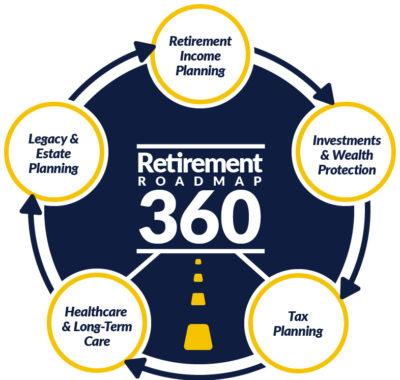You have meaningful goals. Our advisors can help you reach them. We deliver services and solutions that help build, preserve and manage wealth.
Make retirement your own.
Our retirement plans don’t come one-size-fits-all. What you should save depends on your life right now. an IFS advisor will design a strategy with this in mind, using the right mix of insurance, tax and investment benefits.

You don’t see retirement the way your parents did. Neither do we. Discover our new, more personalized approach to helping you live a better financial life in the years ahead.
Assessing your Investment Personality
Discussing your mindset toward investment risk and complexity can help establish the level of risk exposure you are most comfortable with based on:
- Confidence in the future of the markets
- Adaptability to changing market environments and investment outcomes
- Your level of experience with investing
Identifying your preferred approach to investing can help you select strategies that fit your mindset. You and your advisor will discuss:
- Accessibility of your assets
- Ways to help manage risk against downturns in the values of your investments
- Your desired level of involvement in the investment process
It is important to understand what you hope to pursue with your investments. For many people, this includes a focus on:
- Self, such as concerns about whether your essential spending needs can be met
- Family, including education funding and estate plans
- Community-related aspirations, such as charitable giving
Our Retirement Checkup Process

It is more important than ever to check your current retirement plans to see if you are on track towards meeting your investment goals.
If you have a lot of time until you retire, small tweaks in savings or investment strategy can make a big difference. Retirement just around the corner? Sometimes a few changes to your plan now can help you cross the finish line, even if market conditions are less than fully cooperative.
- Determine where you stand – See whether the amount you’re saving and investing is on pace with the money you’ll need to retire (with some margin for error). If you have accumulated several different retirement accounts from past jobs, however, knowing where you stand may be harder than it should be. Consider working with a Financial Advisor with access to sophisticated tools, or consolidating your retirement accounts.
- If you’re off track, figure out why– Are you saving as much as you planned? Are you maximizing your contributions to your employer-sponsored retirement plan or individual retirement account (IRA)? Is the amount of money you’ll need in retirement increasing? If you’re not on course because your investments aren’t performing well, you may need to make a change to your asset allocation strategy, or to the specific investments you’ve chosen. If your investments are not performing at least in line with benchmarks, it may be best to review the latest research in the context of the original rationale for the product. Assuming that checks out, it may be wise to hold on through a period of volatility, as chasing top performers may be a poor way to make decisions.
- Decide how to get back on track – That could include revisiting your goal, for example by stretching out the time horizon until you retire or reducing the amount of money you plan to spend in retirement. It can also mean increasing portfolio risk, though only after careful consideration of your risk tolerance. It could be that the most palatable option is a little of all three, which makes the magnitude of any one change smaller. If you don’t see a clear path to reaching your goals, consider consulting with a Financial Advisor who can help steer you in the right direction.
- Take advantage of ways to improve returns without magnifying the risks – These strategies can include options to minimize taxes, such as “income smoothing” and tax loss harvesting. Insurance can also play a role. If used correctly, long-term care, life insurance and annuities have the potential to bolster your retirement plan due to their tax treatment and risk mitigation features.
- Start adding up your income sources – If you are retiring soon, you need to get the most out of all your sources of income. That could include strategies for claiming Social Security and traditional pension fund payments, and where applicable, approaches to help you secure or maximize rental income. If your reliable sources of income are not significant as a portion of your needs, you may want to add more conservative income-oriented investments, such as dividend paying stocks or bonds.
- Assess the risk level of your plan – If you run through these steps and realize that you are on target to retire in a few years with room to spare, consider reducing the amount of risk in your portfolio. The current business cycle is in late innings. It doesn’t appear that recession is imminent, but a downturn may materialize in the next few years.
Planning for retirement doesn't end when you retire
There are many questions that come before and during retirement, like: how can I help my mother with her long term care needs? Should I consider relocating closer to my kids? Can I start my own business? Our approach can help you answer these questions today!




